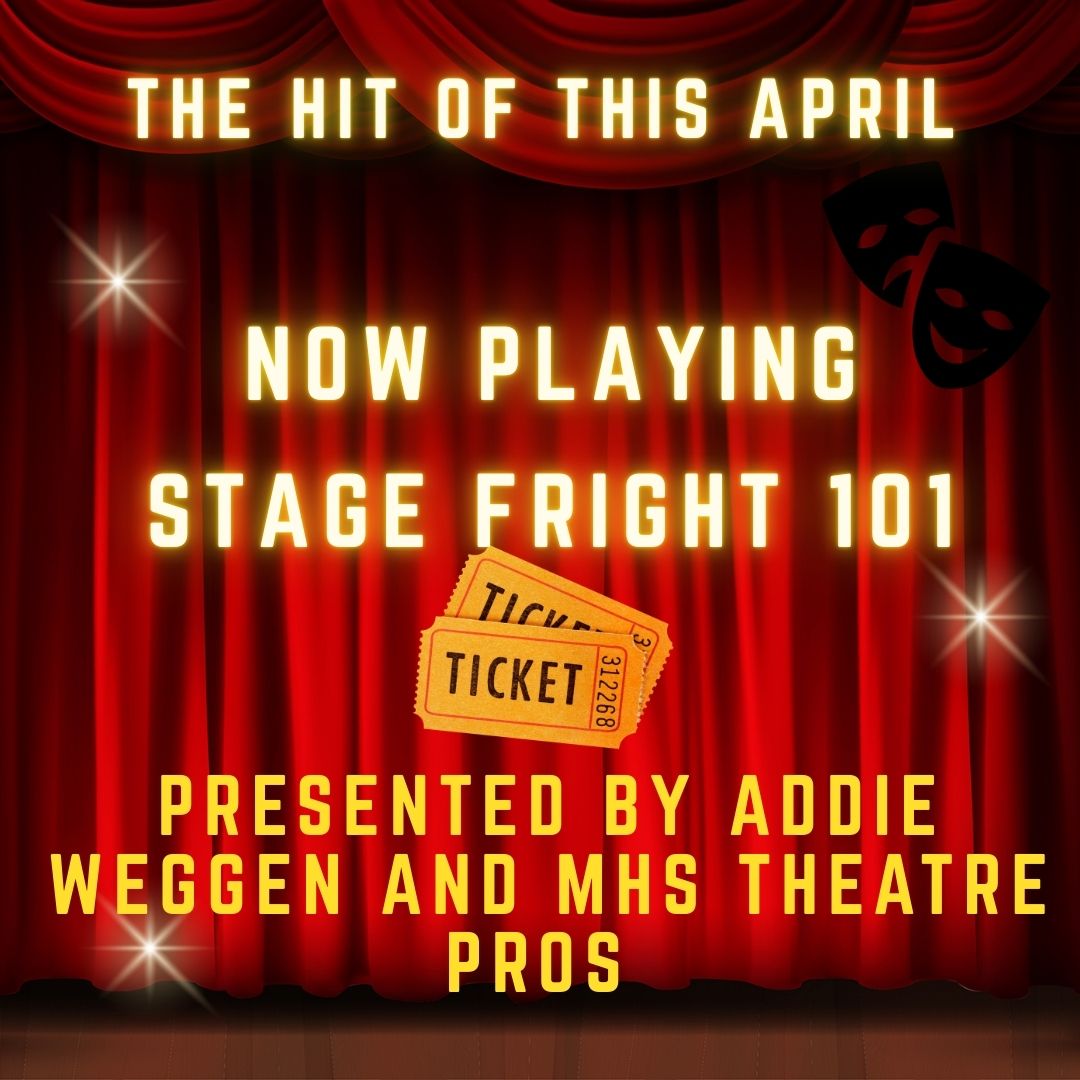
Think back to getting ready for your elementary school music recital, and remember the dread as you walked out on stage to have over one hundred eyes locked on you the whole time. Not a fine arts kid? Compare it to the dreaded feeling the morning of your how-to speech for your 10th-grade English class. This feeling is commonly referred to as stage fright, which is exactly what it sounds like: a fear of being in a public setting with everyone staring at you.
Musical theater, drama, speech and debate, public speaking, and so many more activities here at the school are almost 100% based on speaking in front of a large audience. Stage fright is also way more common than you think, especially in a school environment.
What causes stage fright? Medically, stage fright is a form of anxiety based on performance and the fear of failure. Stage fright is triggered by the fear of messing up or disappointing others in front of a large crowd.
“I do get stage fright, but it comes and goes, and it now is only when I have to sing on stage,” said MHS Senior theatre pro Rachel Kurz, lead in this Spring’s musical, The Addams Family.

Singing is a common occurrence on stage and one of the most common ways to induce the feeling of stage fright. Deep down, this feeling while singing can be dumbed down to anxiety that expresses itself in different ways. Anxiety is not set in stone, and everyone experiences the feeling differently, especially as anxiety can be a disorder and the feeling goes deeper than feeling “happy” and “sad”.
Performing and putting yourself out there is supposed to be a fun activity, and it is once you push past the barrier of stage fright. Some of the best performers admit they struggle with anxiety, but after watching a musical or play, you would never know because of how immersed they were in character.
A perfect example of a successful actor with anxiety is Emma Stone, who is famous for her roles in the “Spider-Man” franchise and “La La Land”. If you take a minute to watch her acting, it is extremely hard to tell she is anxious or struggles with the feeling at all.
Obviously, television and movie filming is different from live performing, but it is still the same concept with music and lines. Stage fright is not a set-in-stone feeling because anxiety is a spectrum, and everyone experiences it differently. That then translates into the fact that there is no set-in-stone cure for stage fright.
The best advice given by Broadway performers and those such as Emma Stone, who deal with anxious feelings each day, is to take your time. It sounds cliche, but letting yourself become immersed in the scene is the best way to lose those scary feelings. Another good rule of thumb is to breathe and ground yourself.
Stage fright is scary, but know that anxious feelings in any setting don’t define you. There are people out there to help you, and the feeling may seem permanent, but it is more temporary than you would know.